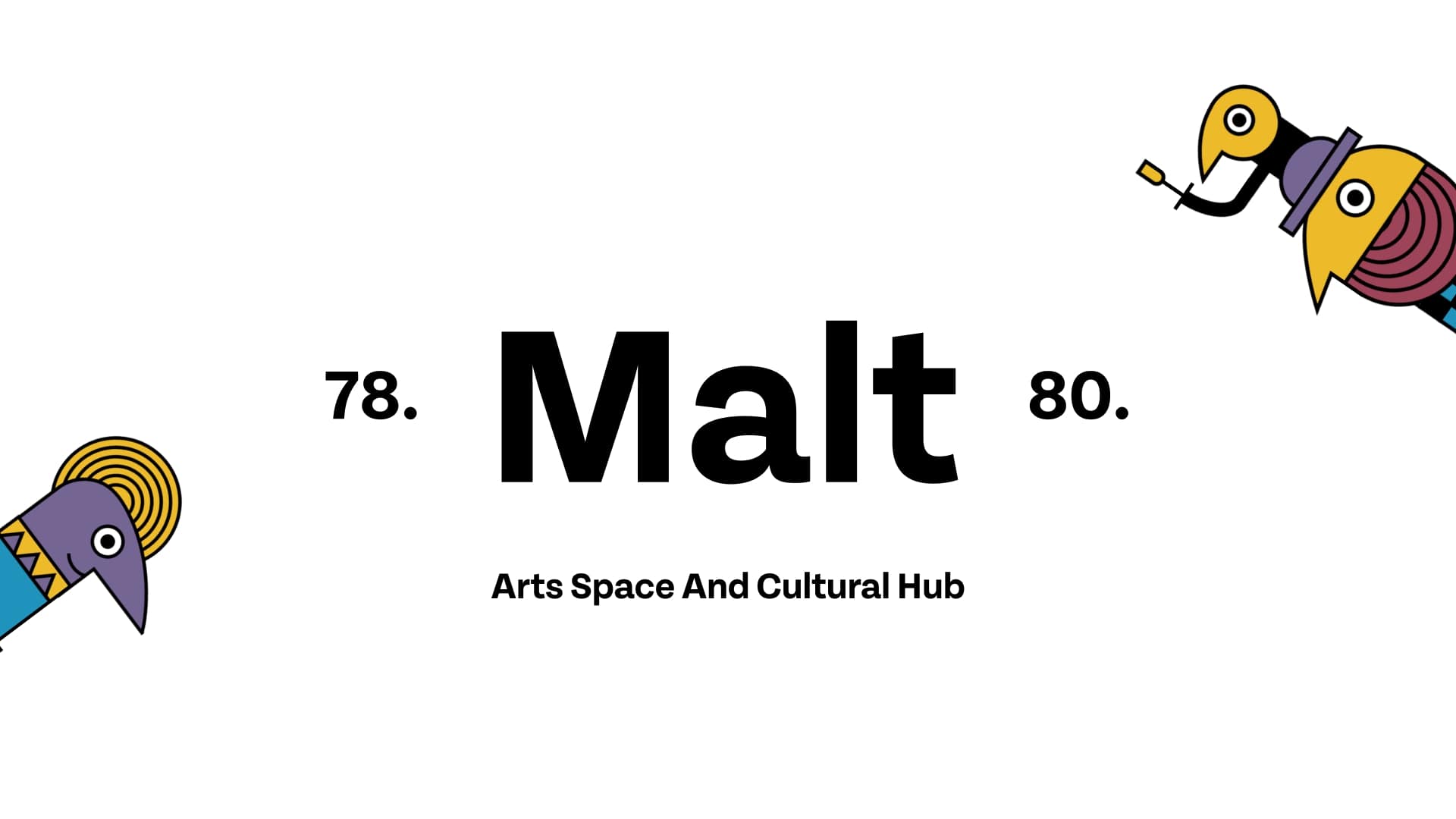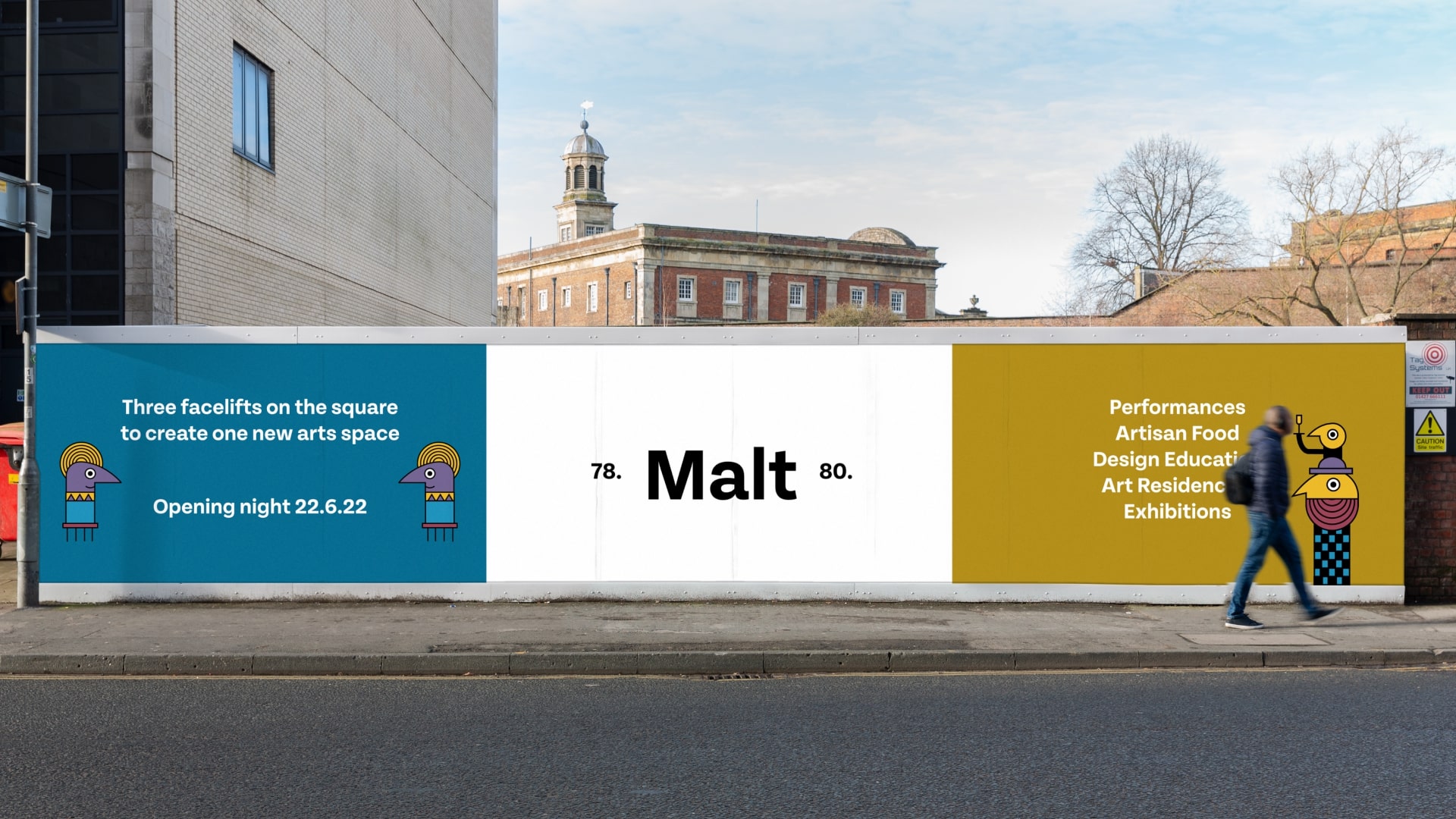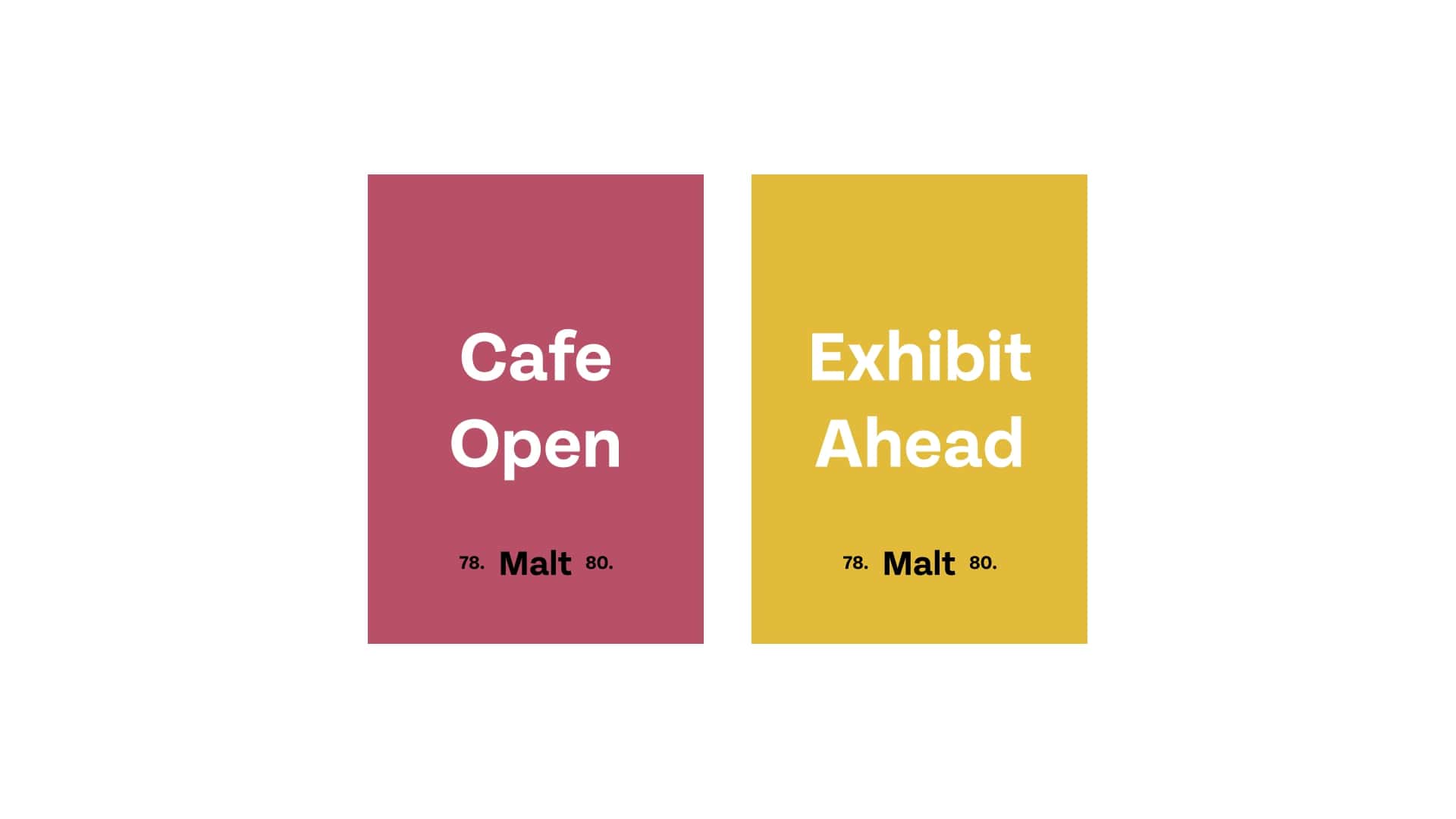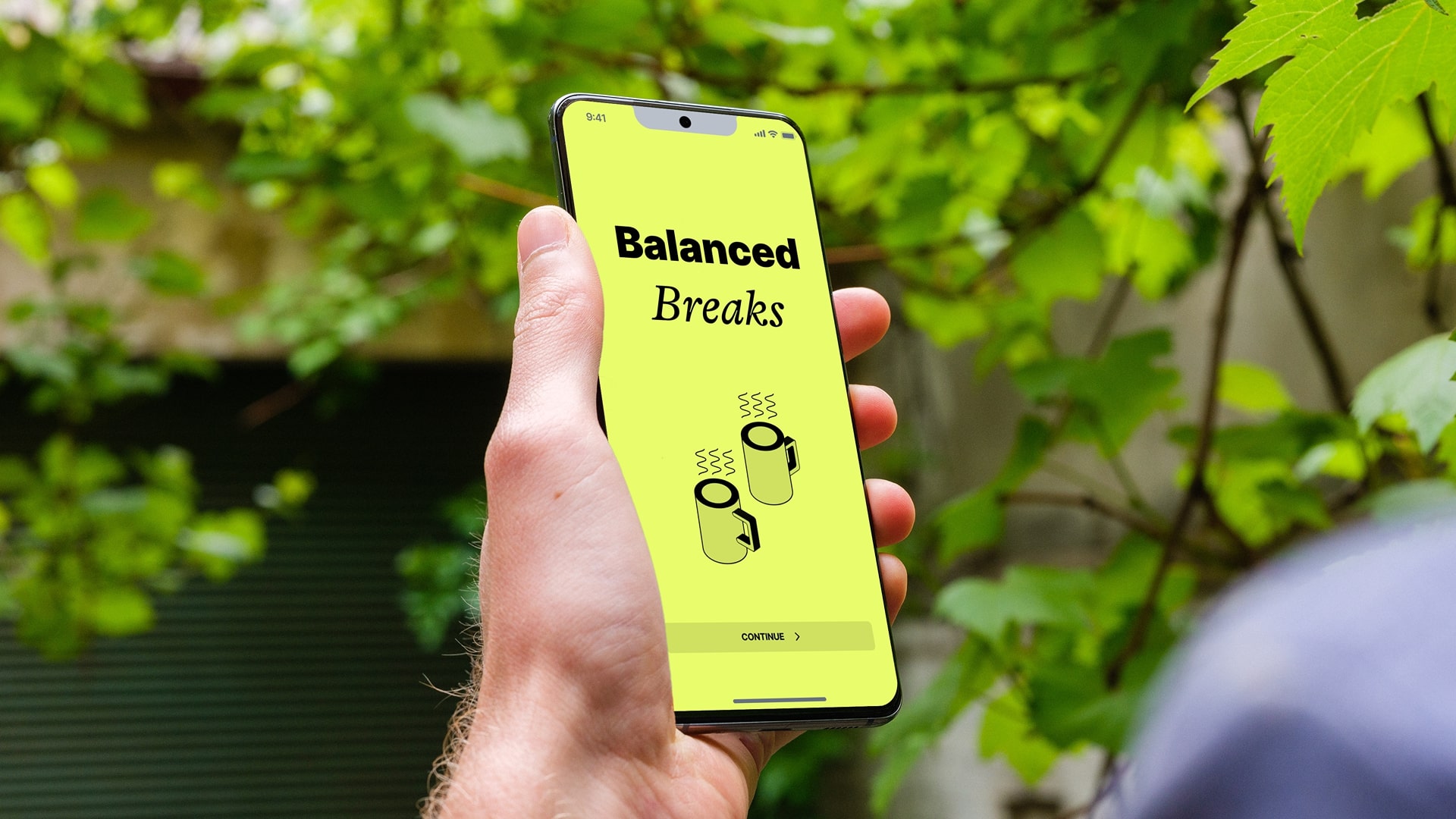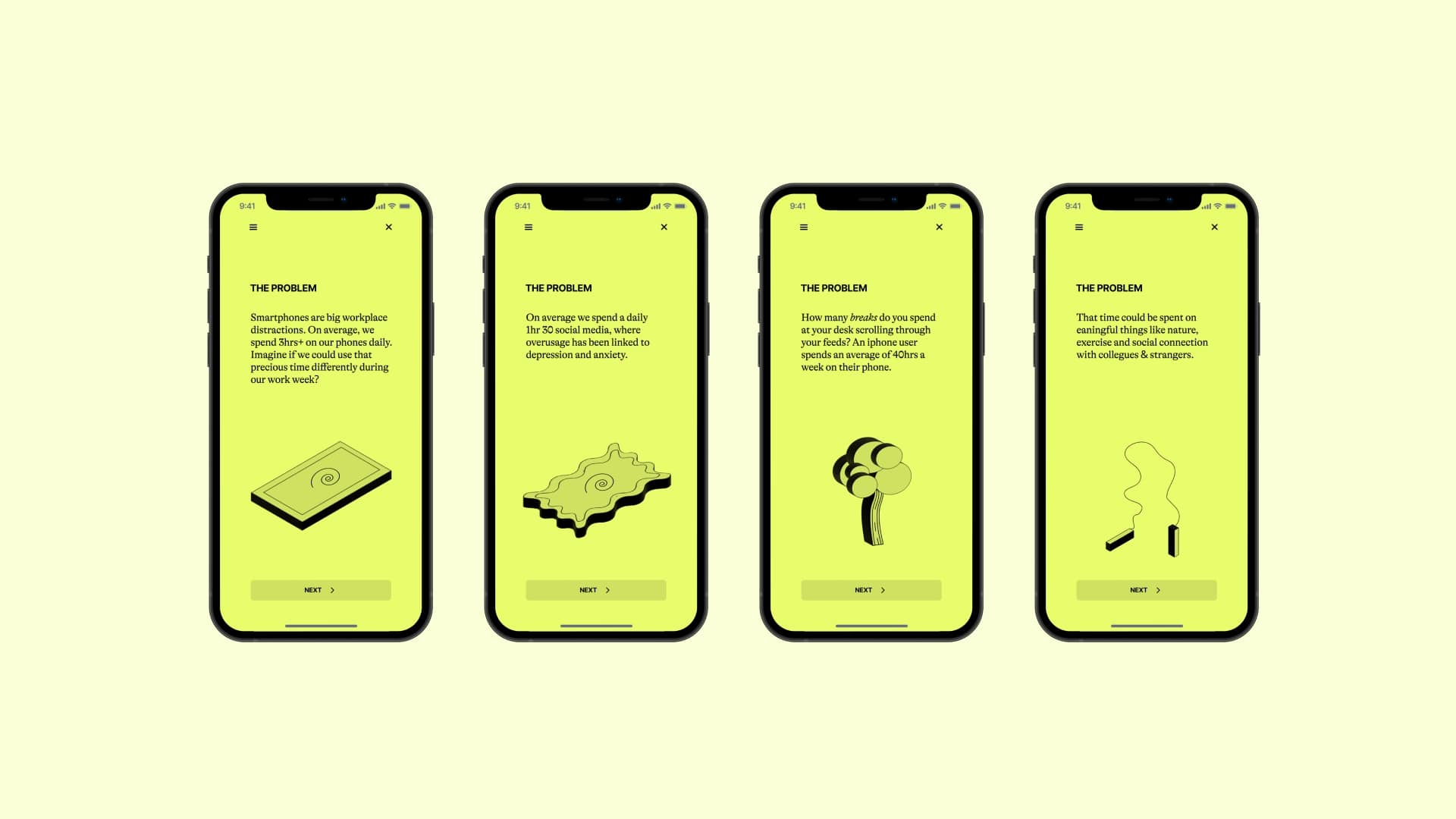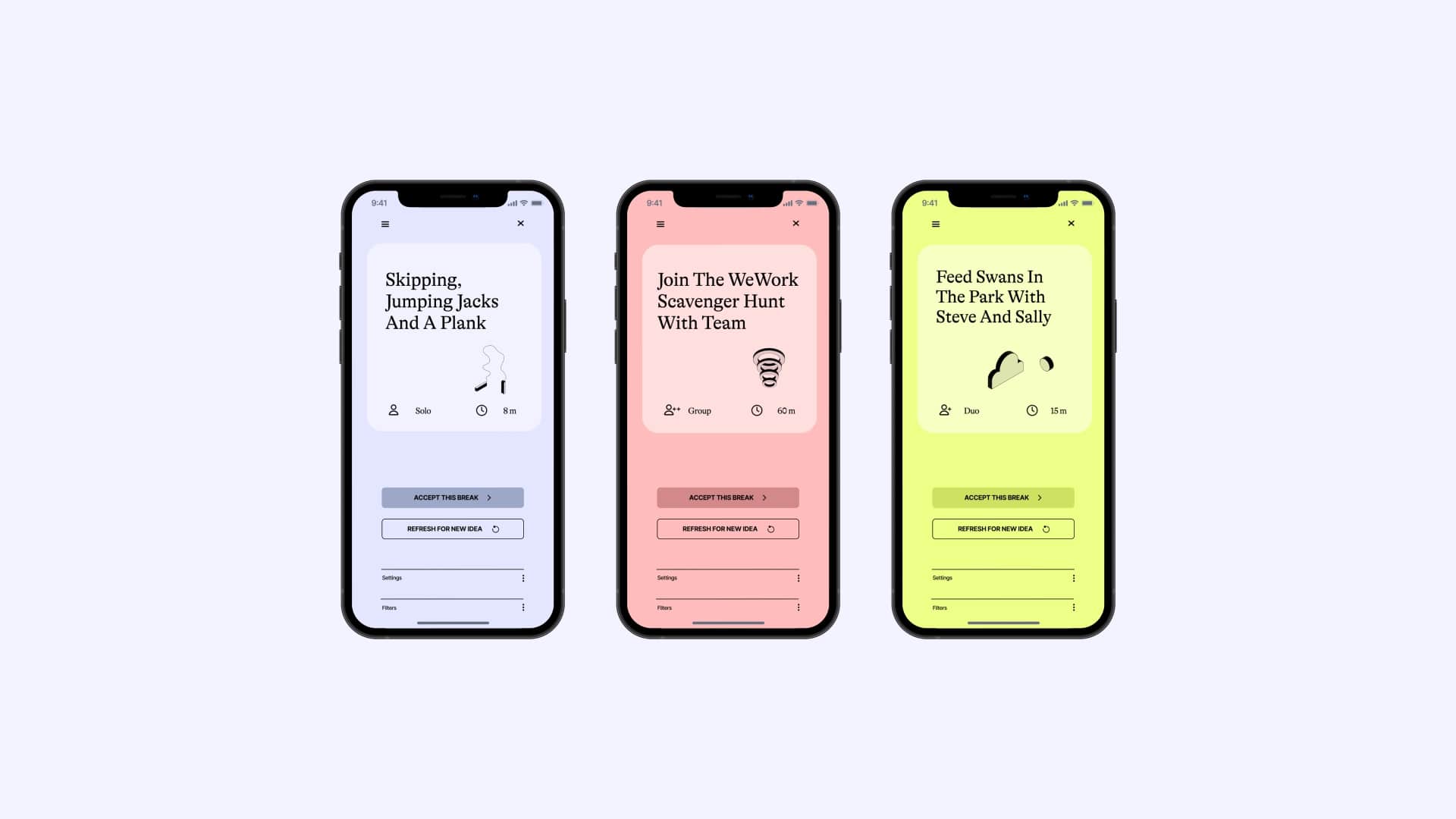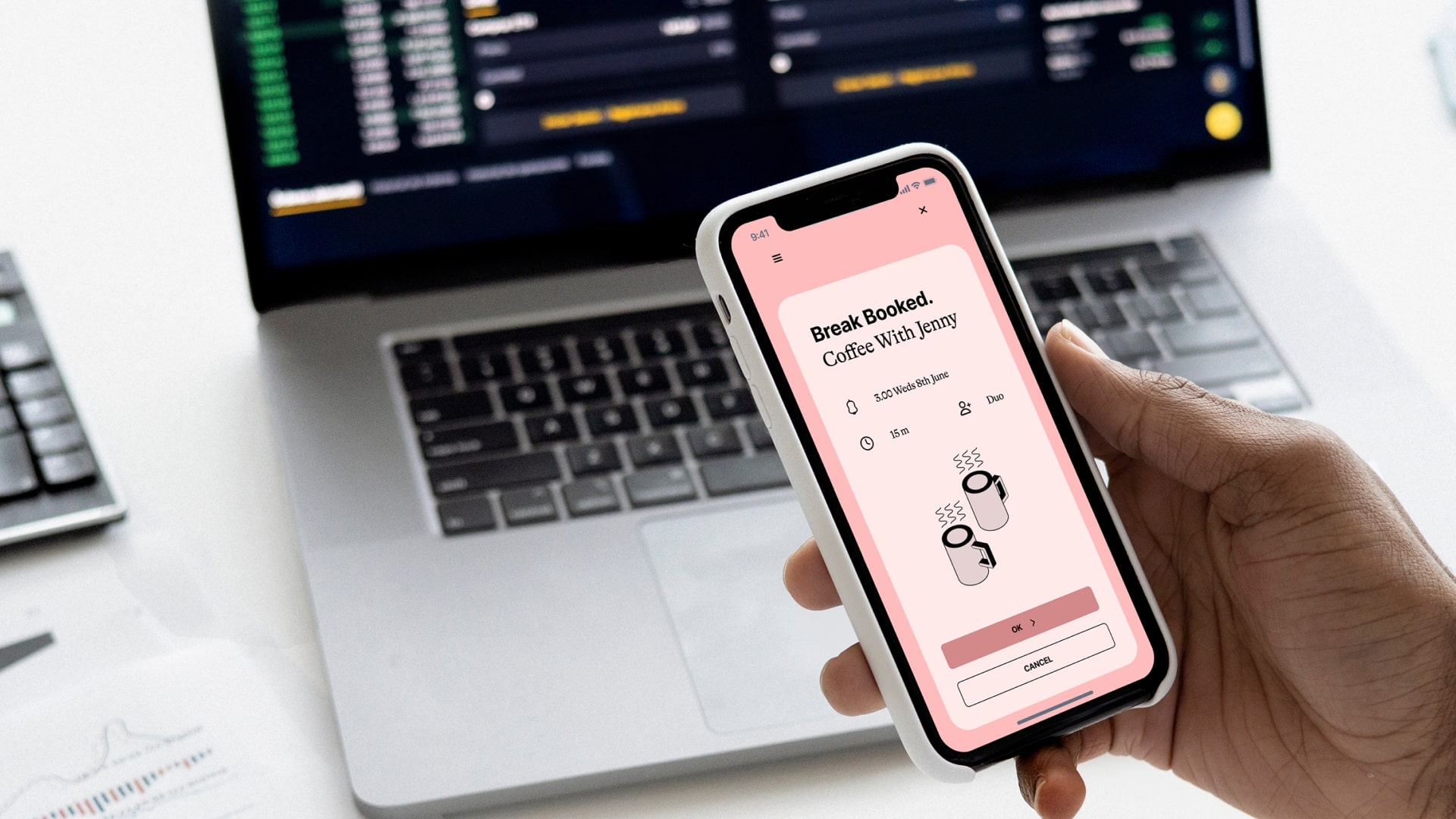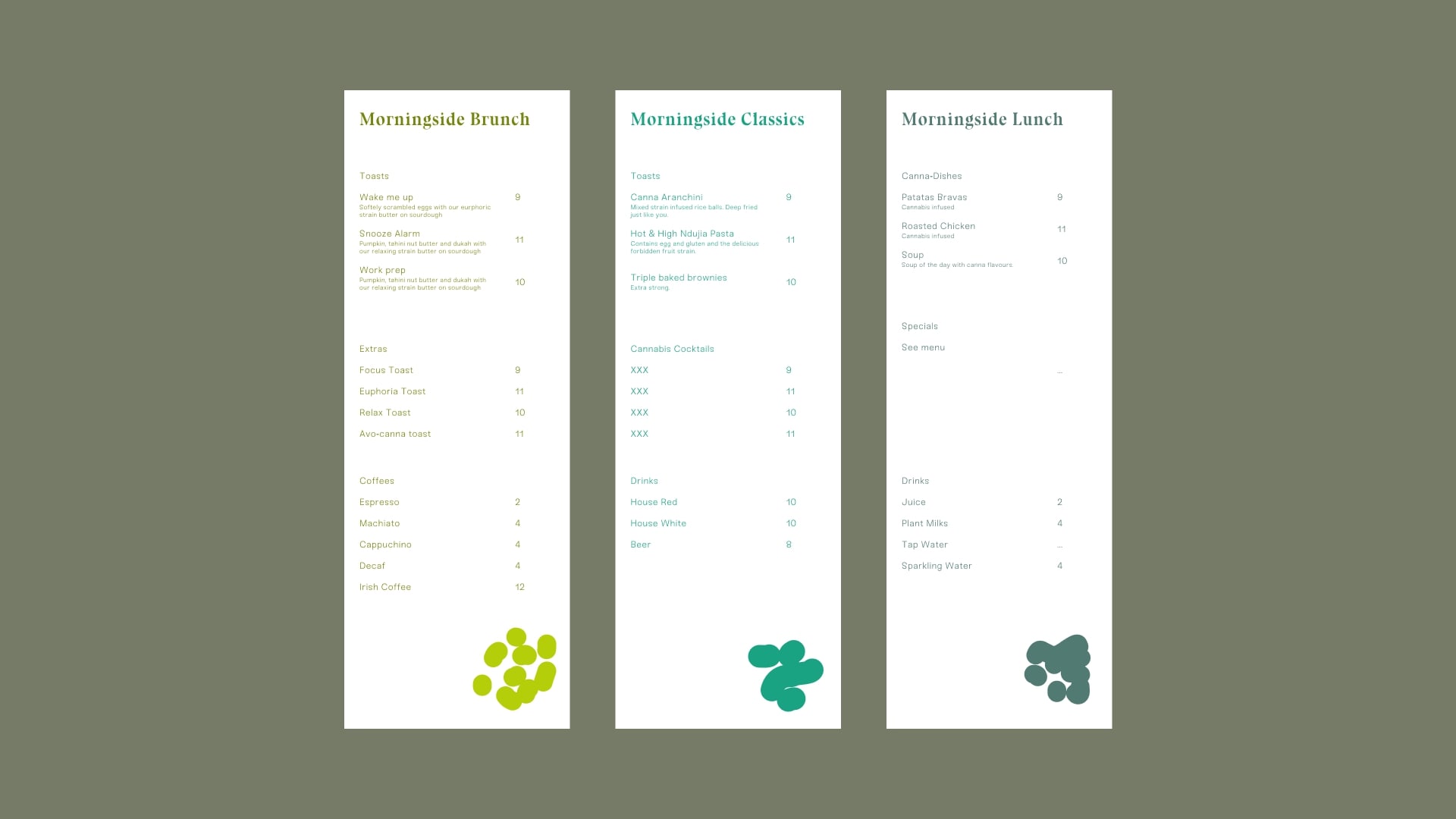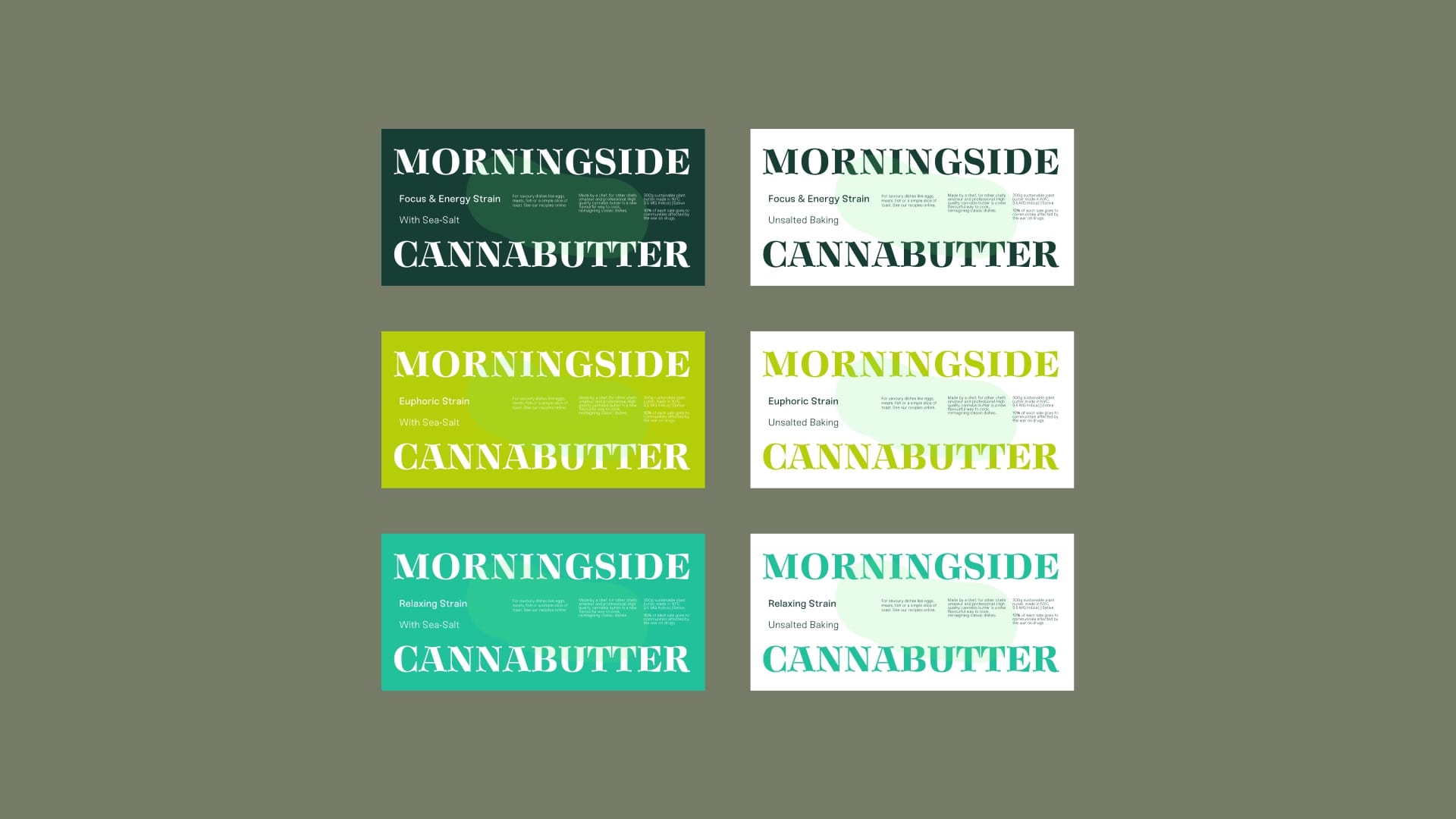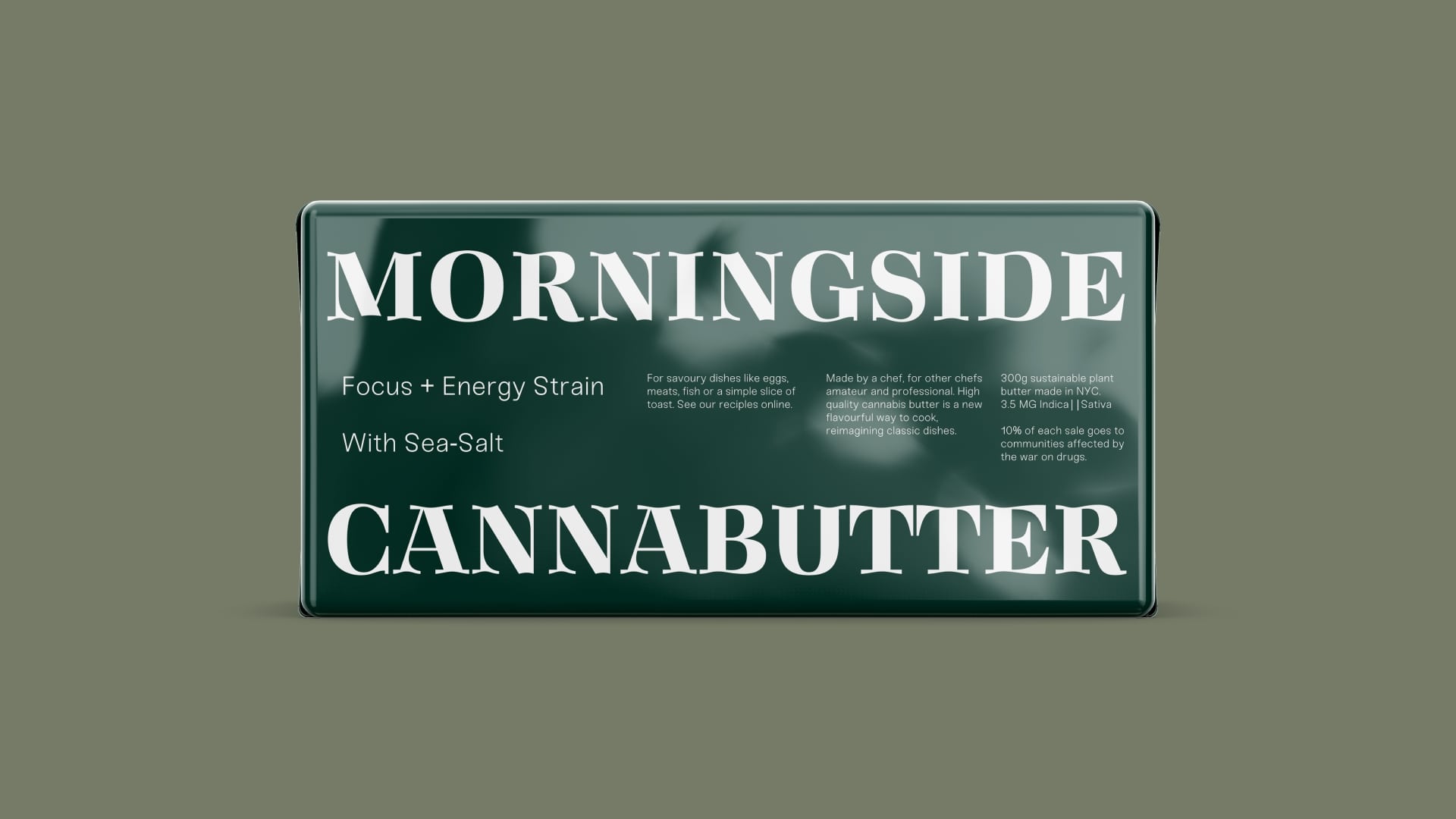Megan Walsh
Megan Walsh | Design
Hi, I’m Megan. I’m a graphic designer & illustrator from Cork, currently based in Dublin. I am passionate about branding and solving problems. I love working in teams and enjoy using a research-based, user-centred design process. I graduated in 2021 from Visual Communications in IADT and I’m currently working as a Junior Visual Designer at Revolut. You can find out more about my projects at www.meganwalsh.ie or feel free to drop me a message on instagram at @megan.walsh.design.
Project 1 | MALT
“MALT” is a proposed, protected cultural space for Dublin’s arts community in the heart of Smithfield Square at 78-80 North King St. Historic maps revealed this block was once a malting house and in archival photos you can see the building of 78 and 79 as a restaurant and small shop. I imagined a place for artists to work and host events that could also double as a trendy cultural hub inspired by other successful arts venues in the city like “The Library Project” and “Hen’s Teeth”. I looked at the street art created in 2013 by Italian artists Valdis & Tilf on the facade of no. 80 as inspiration for the project. The three characters, reimagined as modern graphic illustrations, would bring history forwards as an alternative to the cultural erasure occurring across the city. MALT would have art and co-working spaces for designers, film-makers, artists and musicians as well as a design shop, cafe and rooftop bar. The three characters would represent the three spaces.
Project 2 | Balanced Breaks
“Balanced breaks” is a novel start up concept marketed towards large corporate employers, especially those with a hybrid or remote workforce. It’s goal is to help smart-phone addicted employees have a happier, balanced, and therefore more productive day. It puts the onus on employers, rather than employees to fix the modern flawed workday. Studies have shown that some of the main reasons for smartphone use during the workday are cravings for connection or fun. A 2021 study found that most iphone users spend 40hrs, an entire workweek, every week on their phone. Most screentime occurs not on the weekends where life is generally more balanced and enjoyable but during our 9-5’s. The opposite of addiction is said to be connection, so I thought to help workers stop scrolling we need to give them a workday that’s more fulfilling and enjoyable – not create more stifling rules or bans.
Phone notifications interrupt your focus and checking your phone once makes it immensely more likely you will feel compelled to check it again soon after, setting a forth a chain of events which make deep work and focus near impossible. Your phone is simply a terrible break. The Better Breaks program would build time into your workweek that us the time otherwise spend on phone breaks or social media – to engage in activities of your choosing, like social gatherings with colleagues, exercise, outdoor activities and more. The idea would be that because time has been allocated, incentives given and activities pre-organised, it would be easier for workers to take great breaks and thus easier to turn off their phone and engage in deep work when back at their desks. Better Breaks would run as a welcome program for a few months, with the option to continue or opt out once friendships and good balanced habits are formed. It would be incentivized to continue with the program through extra holiday days and bonuses for completing breaks and focus time periods. It’s a win-win for employers and employees.
Project 3 | Morningside Cannabis Butter
Morningside is a branding concept for the first mainstream cannabis infused butter. To date, there isn’t a popular, high-end cannabutter that’s marketed for chefs and cooking enthusiasts. The Morningside range consists of both unsalted and salted versions in three cannabis strains, focused, relaxed and euphoric. Every recipe can be reimagined with delicious mood-altering effects.
Pentagram asked us to investigate the history of cannabis in New York city and the current grey area of dispensaries setting up without licensing and how the US war on drugs has disproportionately affected BIPOC’s. We were asked to create a New York City based cannabis brand. I imagined this butter would be a spin off product from a successful cafe in Morningside Heights, Harlem, New York. I felt it needed to also have a social conscience, with shares of profits made being put back into communities affected by the war on drugs in local areas. Positioned as an indulgent, luxury product, the packaging features a traditional foil wrap with a luminous spot varnish.
